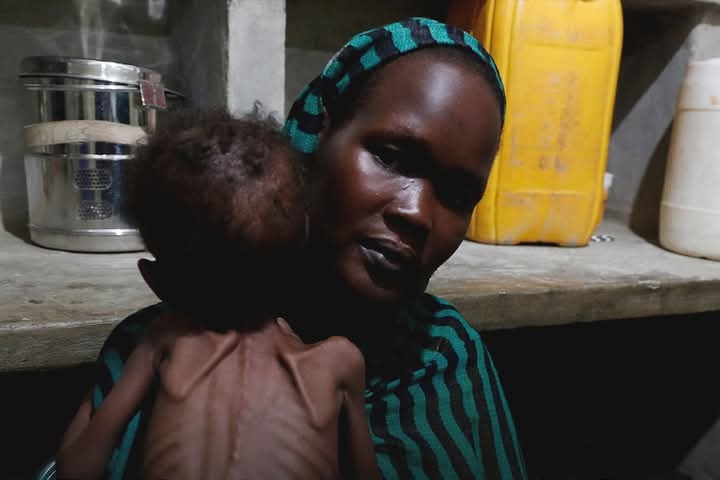By Adeyemi Adekunle
The grip of famine in Sudan has tightened, spreading to five areas and threatening to engulf another five by May, according to a new report by the Integrated Food Phase Classification (IPC).
This escalation underscores the devastating human toll of the ongoing conflict, as warring parties continue to obstruct vital humanitarian aid.
Confirmed famine conditions are ravaging Abu Shouk and al-Salam, two camps for internally displaced persons in al-Fashir, the besieged capital of North Darfur. South Kordofan state has also been hit hard, along with Zamzam camp in North Darfur, where famine was first identified in August.
The IPC warns that five additional areas in North Darfur, including Um Kadadah, Melit, al-Fashir, Tawisha, and al-Lait, will likely succumb to famine by May.
The crisis shows no signs of abating, with the IPC identifying 17 additional areas across Sudan at risk of famine. The numbers paint a grim picture: 24.6 million people, nearly half of Sudan’s population, urgently need food aid through February 2024.
This marks a sharp increase from the 21.1 million projected just six months earlier.
The IPC’s findings are critical in directing humanitarian assistance, but the Sudanese government has increasingly impeded these efforts.
On Monday, the government announced its withdrawal from the global hunger-monitoring system, accusing it of producing “unreliable reports that undermine Sudan’s sovereignty and dignity.”
This suspension comes amid ongoing conflict between rival factions, which has crippled the nation’s infrastructure and paralyzed aid delivery.
The humanitarian crisis in Sudan is now regarded as one of the worst starvation emergencies in modern history, with millions of lives hanging in the balance.
Experts warn that the situation is rapidly deteriorating. “The blockade of humanitarian aid by warring factions is exacerbating an already dire crisis,” said a representative of the IPC. “Without immediate intervention, famine will spread, claiming countless lives.”
The famine has particularly devastated North Darfur, where the besieged capital of al-Fashir remains a focal point of suffering. Camps like Abu Shouk and al-Salam are overwhelmed with displaced families, many of whom are malnourished and lack access to clean water or medical care.
Meanwhile, South Kordofan state is grappling with a similar plight, as violence and instability further restrict aid operations. Relief agencies have described the crisis as a “perfect storm” of conflict, displacement, and starvation, with no end in sight.
The IPC, an independent body funded by Western nations and overseen by 19 major humanitarian organizations, continues to sound the alarm despite the Sudanese government’s resistance. Its report calls for urgent international action to prevent further escalation and mitigate the suffering of millions.
For families trapped in famine-stricken areas, hope is dwindling. “Every day is a struggle to survive,” said Ahmed, a father of three living in al-Fashir’s Abu Shouk camp. “We need help, but it’s not reaching us.”




